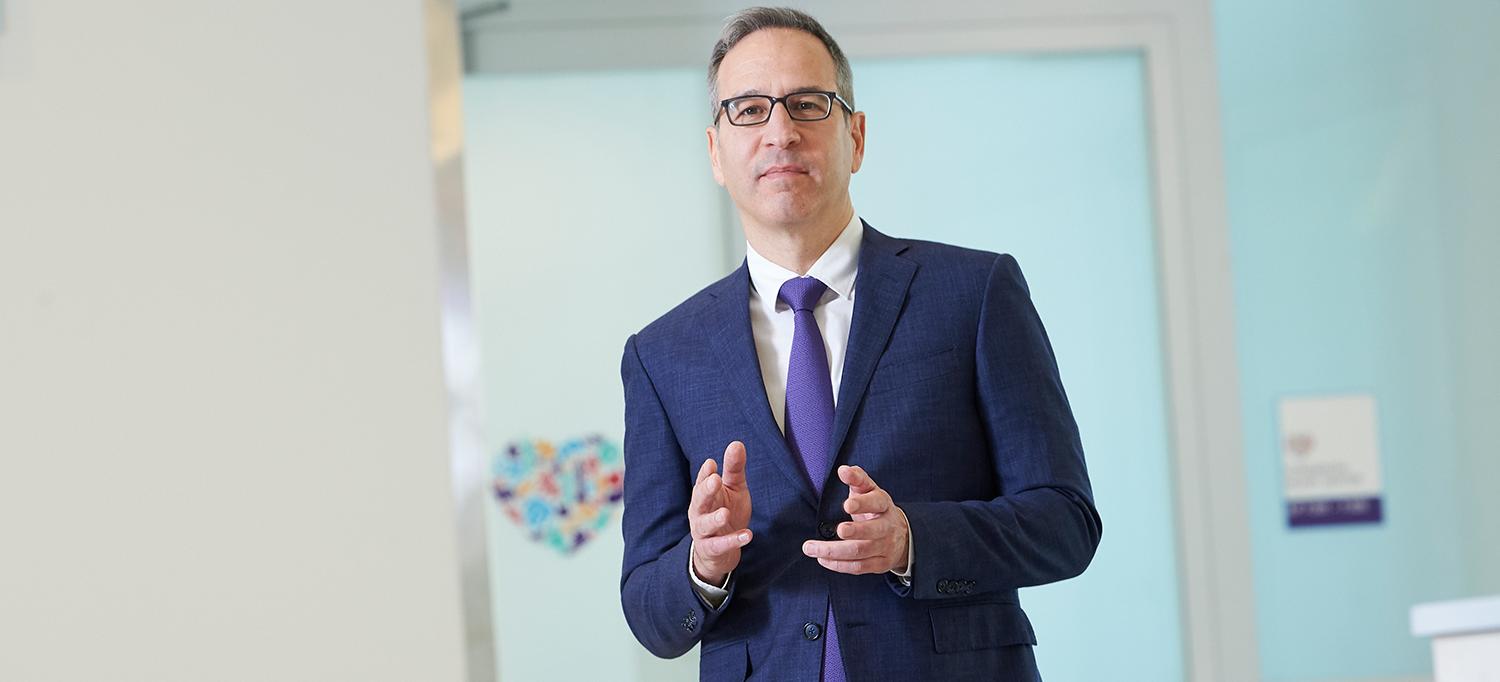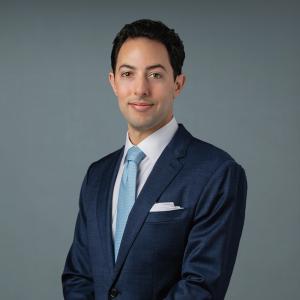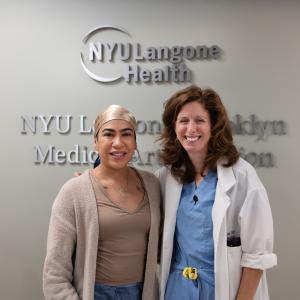
David H. Harter, MD
Photo: Juliana Thomas
The headache started one morning in early January as 13-year-old Hope was getting ready for school. Seemingly within seconds, the pain grew severe and then she lost consciousness.
“She went limp in my arms,” Hope’s mother, Sandra, recalls.
The ambulance took them to the nearest hospital in Manhattan. Once stabilized, Hope was transferred to Hassenfeld Children’s Hospital—34th Street, where doctors discovered an arteriovenous malformation (AVM) in her brain. This abnormal tangle of blood vessels can cause headaches, seizures, and, in Hope’s case, a blood clot if the vessels rupture. Using a microsurgical technique, David H. Harter, MD, a pediatric neurosurgeon at Hassenfeld Children’s Hospital at NYU Langone, removed the ruptured AVM and the hematoma created by the bleeding.
After surgery, Hope began rehabilitation to address all aspects of her recovery. The blood clot that resulted from the ruptured AVM had pushed on the area of Hope’s brain responsible for speech and language. She was left paralyzed on her right side and could not lift her arm, move her toes, or roll over in bed without help. She also had problems swallowing and was on a diet of thickened liquids for five weeks. But for Hope, an A student who played the clarinet in school, the most severe challenge was aphasia, a language disorder marked by difficulty reading, writing, and understanding speech.
Hope started inpatient rehabilitative care at Rusk Rehabilitation at NYU Langone Orthopedic Hospital. Her team included physical therapist Keiko Okuda, who helped Hope regain physical function and had her walking on a treadmill on her second day; occupational therapist Teresa Fitzsimmons, who worked with her on everyday tasks such as how to dress herself; and speech–language pathologist Erin McLoughlin, who helped Hope relearn to read and write, understand spoken language, express herself through speaking, and drink thin liquids again. Hope also worked with a psychologist, a recreational therapist, and a chaplain, and was able to continue her studies through the hospital school program during her inpatient stay.
“I went from not being able to do basic arithmetic and not recognizing letters of the alphabet to reading graphic novels on my own.”—Hope, Age 14
By the middle of February, Hope walked out of the hospital on her own and was regaining the use of her right hand. She continued her recovery with outpatient therapy, including video visits with speech–language pathologist Allison Ehresman, and made remarkable progress. “I went from not being able to do basic arithmetic and not recognizing letters of the alphabet to reading graphic novels on my own,” Hope says.
Despite missing months of school, Hope, who recently celebrated her 14th birthday, was able to catch up with schoolwork and write her valedictory speech for her graduation from middle school. She practiced her speech with her therapist and recorded it in time for her graduation ceremony. Hope continues to receive support from her therapists at Rusk Rehabilitation as she embarks on the next phase of her academic career at one of New York City’s prestigious specialized high schools.

